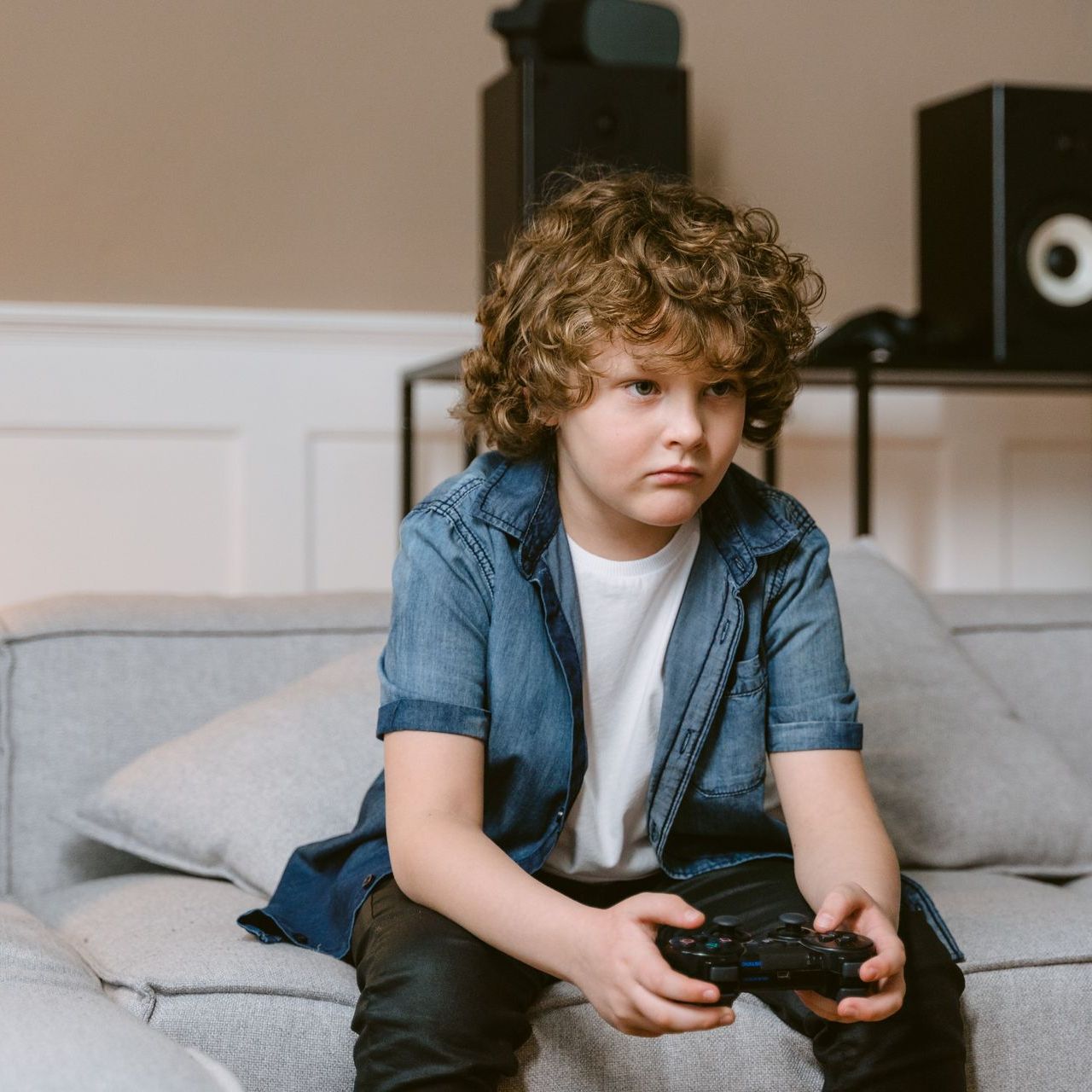Bullying: What Are the Signs and What to Do About It
Bullying: What Are the Signs and What to Do About It
Author: Becky for TwoMumsInDubai.com
Date Published: November 11, 2017
Two Mums in Dubai had the pleasure of interviewing Dr Fadwa Lkorchy, developmental psychologist from the German Neuroscience Centre, about Bullying in the UAE, and how parents can deal with it.
Bullying is one of the highest concerns of parents with school-aged children, and their worries are not unfounded, with one study showing that just under half of all school kids in the UAE had been exposed to bullying at some point.
Being the victim of bullying myself from about the age of 10 right through to 17, I know the ostracising and socially isolating feelings it can produce, and the impact it can have on self-esteem and the ability to perform well at school.
What is bullying?
UNESCO defines bullying as repeated, unwanted and negative behaviour against another person who has trouble defending themselves.
Bullying does differ between the sexes. “Bullying with boys tends to be more physical,” Dr Fadwa says, “but now it is better because we are so aware about physical bullying, and we tend to raise boys now not to be so physical. With girls it is more mental and emotional. It involves more segregating, labelling, rumours,” and it’s this type of bullying that is the hardest to deal with. “When it’s psychological or emotional you feel like an outcast, and once you’re put in that box you tend to develop a pattern of feeling as though you deserve it, that it’s something about you that is causing it.”
These feelings often don’t end when the bullying ends. They can stay with the person, develop into more serious issues. “It can become an in-depth psychological belief: eating disorders, failure in relationships, failure in communication, difficulty keeping a job, submissiveness, being ok with abuse. It can get very bad and be crippling throughout their lives.”
The problem with cyberbullying is that there are no limits. Because we’re not actually looking at the person eye to eye, we’re not seeing the emotions of the person, it tends to continue for a very long time, and it can be hidden more easily.— Fadwa Lkorchy
Cyberbullying
Bullying can take many forms, from spreading rumours and name-calling to physical abuse. However, one of the most common and concerning platforms these days is through social media and phone messaging, or cyberbullying.
Dr Fadwa says the problem with cyberbullying is that there are no limits. “Because we’re not actually looking at the person eye to eye, we’re not seeing the emotions of the person, it tends to continue for a very long time, and it can be hidden more easily.”
With cyberbullying, it’s no longer limited only to the schoolyard, or school hours; children can now be harassed 24/7.
And the audience is wider, too. “That message can go viral, extending to other people,” says Dr Fadwa. With traditional bullying, “there is the bully, the victim and the bystander,” but with cyberbullying, “now we have just expanded the bystander.”
Luckily, the law is on your side. If the bullying becomes serious enough, it is considered a cybercrime in the UAE; and Dr Fadwa states that, “parents will be held responsible if their child is causing another child any form of pain.”
This means that parents must take responsibility for their children’s online activities, and keep a close eye on what they are doing on their phones, iPads and other electronic devices.
This can be done by:
- Installing apps on phones to limit time or to scan for key words/phrases.
- Making sure you have access to all passwords for email, Facebook, Twitter, Snapchat, Instagram and any other social media platforms your child may be using.
- Only allowing use of devices or laptops in a public area of the home, and never in bedrooms.
Some parents, especially of teenagers, may be concerned about crossing the boundaries of privacy, however preventing cyberbullying must be put at a higher priority.
Why do bullies bully?
Dr Fadwa says it is a part of nature. “Most of the time if I can show dominance and no one is topping me, it feels good.” However, she warns not to be so quick to put a child in the ‘bully’ category. “We tend label the bully and they become an outcast, but often if the bully is bullied at home, it’s because the parents are being verbally or physically abusive, so this is how he takes it out. It feels good to have power over someone else when you’re always put down, belittled etc. This can be the root of the problem.”
One of the most important things to remember is that most bullying in the UAE tends to come from prejudices learnt at hom— Fadwa Lkorchy
Why do bullies bully?
“It depends if you catch it early or not, and it depends on the adults’ reaction to it.” Dr Fadwa says. “Kids are kids, and at a young age it may not be bullying to say I don’t want to play with you, or you’re not friends with us. They are developing their own experience; they tend to be territorial and that’s how they express it.”
So, you have two steps you can take: “talk to the other child and say ‘Why don’t you want to be friends with my son?’ Instead of being sensitive and automatically labelling him as a bully and that he’s going to grow up as a bully. At the same time, I’d explain to my son that it’s ok if somebody doesn’t want to play with us, because instead of Katrina I have Jack to play with, and ignore Katrina who’s not behaving nicely.”
“As the kids grow up and have more understanding of what it means to hurt another individual, then it becomes more identifiable as bullying.”
Dr Fadwa says the best way to prevent it is to “educate your kid.”
Bullying “is part of the natural process of human development. We can’t say we’re just going to stop bullying, because it will continue to happen. But are we educating our kids? Are we showing them: this is right and this is wrong, and when to stop when there is a conflict, when you have overstepped the boundaries of the comfort of another person and you are creating discomfort or pain?”
One of the most important things to remember is that most bullying in the UAE tends to come from prejudices learnt at home, Dr Fadwa says.
“It’s this mentality, especially in the UAE, that everyone is better than everyone else. The British are better than the Americans, and the Arabs are better than all of them… but the kids get this information from home, from the casual talk around the dinner table. And that becomes the frame of reference for the kids. We have to be very careful what kind of information we’re giving so we don’t label people, who is the smartest or more capable, who are the servers or labourers. Bullying can stem from that, because when a child is raised in an environment where they think they are superior, they bring that to school.”
It all comes down to communication. “Talk to your child. It’s very important we teach our children to be responsible.” Dr Fadwa says we have forgotten a simple key tradition, just sitting around the dinner table and talking. “What did you do today? They may say I hate so and so… Then I can address that, and help my child through the process.”
What if my child is being bullied?
“The request for help from the school needs to come from the child not the parent. To teach the child the process of voicing their concerns, I would ask my child: ‘What do you think we should do? Do you think we should talk to the teacher first?’
You can still support them, but tell them, “I will go with you now, I will have your back, but you do the talking.”
“Even have your child write it down. Say: ‘Okay, let’s write down what you’re going to tell the teacher.’ Make a plan, and rehearse it.
Remember, “You cannot be there for every minute of your child’s life, and you are doing them no favour by overprotecting them.” This is an opportunity to teach your child skills, “not an opportunity to protect him and make him weaker. Your job is to help them through the process and be there to listen and comfort. Otherwise he will just see that you fixed the problem for him.”
Once help is requested from the school, parents should expect a mediation to be arranged between the children. Schools also need to make sure they are raising awareness about bullying in the classrooms, “because sometimes kids don’t realise that what they are doing is bullying. They should be talking about space, respecting others boundaries, and understanding other’s feelings.”
What if you feel that the school is not doing enough?
“Sometimes the schools are overwhelmed and they can’t have one-on-one supervision for every child. Some schools are wonderful, but others want to blame the parents, and say ‘You deal with it,’ or ‘Bullying is a fact of life,’ and that’s not the right approach. At the end of the day it is the school’s responsibility that every child is comfortable, to a point. The parents also need to understand that they have to work at it, too; schools don’t have a magical potion to deal with everything your child goes through, so you have to work with them.”
She also says, perhaps controversially, that sometimes it’s ok to teach them to hit back.
“I think we take it too far by saying: ‘My kid should never hit back.’ Well, your kid should hit back if the other kid is not stopping. I would show my kid the process: first we go to the teacher, then we go to the administration; but the fact is that most of the time schools are overwhelmed. They’re not always going to be there. So what are we going to do the next time that kid pushes your son down the slide when nobody is looking? You teach your son to get up there and hit him back.”
“It’s about teaching him to defend himself, because there isn’t always going to be someone around to do the fighting for him. Teach the process, but if that process doesn’t work then you hit back, and that’s the only thing that’s going to stop the bully.”
Rather than us fixing the problem, the best thing we can do is to give kids the tools to deal with it themselves.— Fadwa Lkorchy
What if my child is not talking about it? What are the signs?
Dr Fadwa says to look out for:
- Disturbances in sleep.
- Irregularity or sudden changes in behaviour. If they start talking too much, it might mean they’re not talking at school; or if they start talking much less, it’s often a good indicator that there’s a problem.
- Changes in eating habits. Overeating, or not eating enough.
- Overconcern about appearance. Starting to use words like ‘I’m too fat, too ugly, I’m dumb, stupid’.
- If they never want to go to school.
- Being notably sad or depressed before or after going to school.
So what can we do about it?
It’s vital to start open channels of communication as young as possible. “As parents we see our children as extensions of ourselves, so if they show any sign of weakness, God forbid. ‘I dealt with it like that when I was young, so you deal with it.’ But that won’t toughen your children up the way you think, by telling them to ‘toughen up, stop crying.’ If those are the messages your child is getting in the beginning, then they won’t open up to you later. Or if he tells you something like this and you blow up, respond with anger, say: ‘Tomorrow I’m going to go in there.’ He doesn’t want you to do that, he just wants to confide.”
And if your child doesn’t want to open up, try giving them a safe space to talk.
When they are younger, “do it around play. If you’re concerned but your child is not able to tell you directly,” then start talking with them while you are playing, or doing an activity together.
Give them a point of reference, something to relate to. “Talk about your own experiences with bullying. If you make it sound like anybody can go through that and there’s a solution, they will grab onto your experience and start talking about it. If you went through bullying, talk about what happened, how you felt. Ask them has that ever happened to you? Have you seen it to happen? Then your child will open up and talk about it.”
What if my child is being bullied?
“When those changes have lasted for more than two weeks. If they don’t want to go to school for about two weeks, for example, then you need external help. Parents have so much pressure in today’s society, but if you can’t deal with it there is no shame in getting help with someone else.”
Read the original article here
See more media by Fadwa Lkorchy











